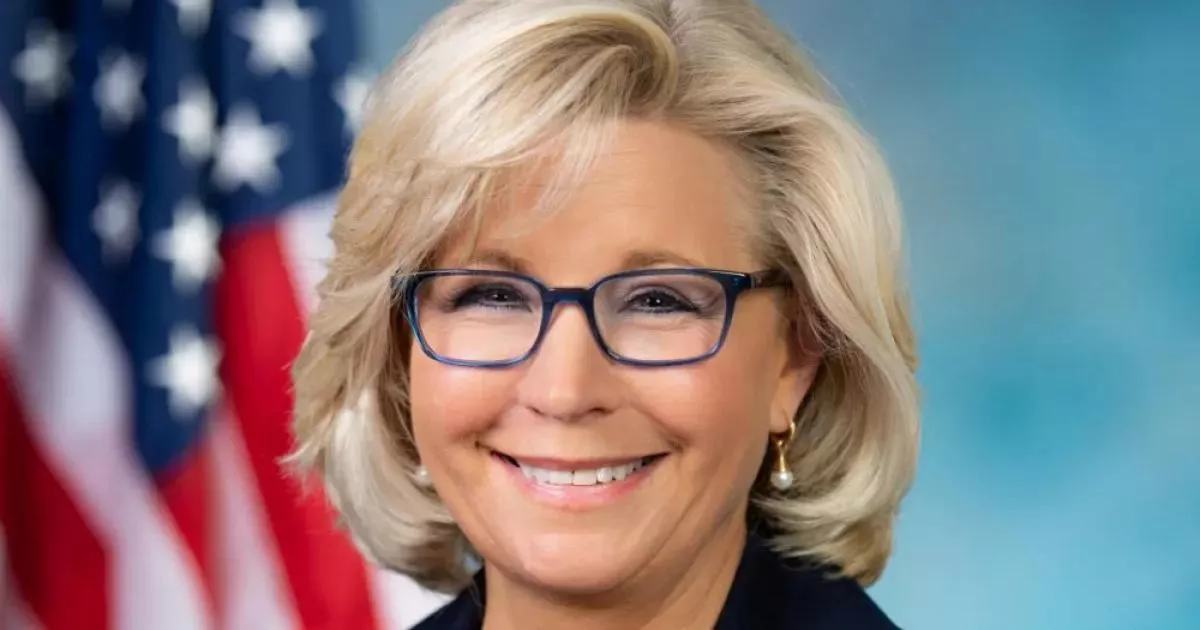Liz Cheney is an American attorney and politician who served as the U.S. Representative for Wyoming's at-large congressional district from 2017 to 2023. Rising to the third-highest position in House Republican leadership, she is largely known for her conservative stance and, more recently, for her outspoken criticism of Donald Trump. This opposition led to her removal from her leadership role in the House Republican Conference. Post-congressional career, she became a professor of practice at the University of Virginia Center for Politics.
July 28, 1966: Elizabeth Lynne Cheney Born
On July 28, 1966, Elizabeth Lynne Cheney was born. She would later become a prominent attorney and politician.
1979: Father's Congressional Seat
From 1979 her father had held the same seat she was later elected to.
1984: Graduated from McLean High School
In 1984, Liz Cheney graduated from McLean High School in suburban Washington, D.C.
1989: Father's Congressional Seat
In 1989 her father no longer held the same seat she was later elected to.
1989: Her father's representation ended
In 1989 her father was no longer representing Wyoming in the House.
1989: Worked for State Department
In 1989, Liz Cheney began working for the State Department and the United States Agency for International Development.
1993: Joined Armitage Associates LLP
After 1993, Liz Cheney took a job at Armitage Associates LLP, a consulting firm founded by Richard Armitage.
1996: Received JD from University of Chicago
In 1996, Liz Cheney received her JD from the University of Chicago Law School.
2002: Appointed Deputy Assistant Secretary of State
In 2002, Liz Cheney was appointed deputy assistant secretary of state for Near Eastern affairs.
2002: Voted Against Repealing 2002 AUMF
On June 17, 2021, Liz Cheney was one of 160 House Republicans to vote against repealing the 2002 AUMF, which granted the Bush administration the authority to wage war with Iraq.
2003: Left State Department Post
In 2003, Liz Cheney left her State Department post to work for the Bush–Cheney 2004 reelection campaign.
2004: Middle East Project Budget
For the budget year 2004, the Middle East project sought $145 million.
2004: Campaign Initiative
In 2004, Liz Cheney participated in the Bush-Cheney campaign's "W Stands for Women" initiative.
February 14, 2005: Returns to State Department
On February 14, 2005, Liz Cheney returned to the U.S. State Department as principal deputy assistant secretary of state for Near Eastern affairs and coordinator for broader Middle East and North Africa initiatives.
April 2006: Critical Article in The New York Times
In April 2006, The New York Times published a story critical of Liz Cheney's work, particularly regarding Iran.
June 2007: Co-Chair of Fred Thompson's Campaign
In June 2007, Liz Cheney signed on as one of three national co-chairs of Fred Thompson's 2008 presidential campaign.
2008: Advisor to Mitt Romney
In 2008, after Thompson dropped out of the race, Liz Cheney joined Mitt Romney's presidential campaign as a senior foreign policy advisor.
October 2009: Launched Keep America Safe
In October 2009, Liz Cheney, William Kristol, and Deborah Burlingame launched Keep America Safe.
2009: Keep America Safe Founded
In 2009, Liz Cheney and Bill Kristol founded Keep America Safe, a nonprofit organization focused on national security issues.
2009: Defense of Waterboarding
In 2009, Liz Cheney defended the use of waterboarding during the George W. Bush administration, comparing it to SERE training.
2009: Refusal to Denounce Birtherism
In 2009, Liz Cheney refused to denounce adherents of Barack Obama citizenship conspiracy theories (birtherism) on Larry King Live. In 2009, Cheney gave the keynote address at a dinner hosted by the Center for Security Policy, an anti-Muslim think tank deemed a hate group.
2010: Called a "conspiracy propagandist"
In 2010, Bud Goodall labeled Liz Cheney a "conspiracy propagandist."
2010: Comparison to Bob Inglis Defeat
Liz Cheney's margin of defeat in 2022 was the second-worst for a House incumbent in the last 60 years, behind that of South Carolina Republican Bob Inglis in a 2010 primary runoff.
January 2012: Contributor for Fox News
In January 2012, Liz Cheney was hired as a contributor for Fox News.
2012: Purchased Home in Wyoming
In 2012, prior to running for Senate, Liz Cheney purchased a home in Wyoming.
July 16, 2013: Launched Senate Campaign
On July 16, 2013, Liz Cheney launched a run for the Senate in 2014 from Wyoming as a Republican.
2013: Opposition to Same-Sex Marriage
In 2013, during her Senate bid, Liz Cheney voiced her opposition to same-sex marriage, leading to a public dispute with her sister, Mary Cheney.
2013: Cheney compared Trump to Obama on Iran
On June 21, 2019, Liz Cheney compared Trump not attacking Iran to Barack Obama not attacking Syria in 2013.
January 6, 2014: Withdrew from Senate Race
On January 6, 2014, Liz Cheney withdrew from the Senate race, citing family health issues.
2014: Criticism of Obama and Pelosi on Torture
In 2014, Cheney criticized President Barack Obama for saying, "we tortured some folks". That same year, she also criticized Nancy Pelosi for calling out her father for his support of using torture.
2014: Senate Candidacy Withdrawal
In 2014, Liz Cheney briefly ran for the U.S. Senate in Wyoming but withdrew before the election.
2014: Family Spat and Senate Campaign End
In 2014, the media attention surrounding the family spat over Liz Cheney's stance on same-sex marriage was cited as one of the reasons she ended her Senate campaign.
2015: Cynthia Lummis Retired
In 2015, Cynthia Lummis retired, creating the vacancy Liz Cheney sought to fill.
2015: Opposed Joint Comprehensive Plan of Action
In 2015, Liz Cheney and her father expressed opposition to the Joint Comprehensive Plan of Action.
February 1, 2016: Launched Campaign for House Seat
On February 1, 2016, Liz Cheney launched a campaign for Wyoming's House seat after Cynthia Lummis retired.
2016: Election to House of Representatives
In 2016, Liz Cheney was elected to the House of Representatives, holding the seat once held by her father.
January 3, 2017: Sworn into Office
On January 3, 2017, Liz Cheney was sworn into office as a U.S. Representative.
2017: Cheney Represented Wyoming
In 2017, Liz Cheney began representing Wyoming's at-large congressional district in the U.S. House of Representatives.
2017: Aligned with Trump's Positions
In 2017, Liz Cheney voted in line with Donald Trump's position around 93% of the time.
2018: Defense of Enhanced Interrogation Techniques
In 2018, Liz Cheney defended the use of so-called enhanced interrogation techniques, claiming they "saved lives" and led to Osama bin Laden, after Senator John McCain criticized CIA director nominee Gina Haspel. Her remarks were criticized by Meghan McCain.
May 2019: Comments on Strzok Texts
In May 2019, Liz Cheney commented that Peter Strzok's texts sounded like a "coup".
June 2019: Criticized Ocasio-Cortez
In June 2019, Liz Cheney criticized Alexandria Ocasio-Cortez for comparing immigrant holding centers to "concentration camps".
June 21, 2019: Compared Trump to Obama on Iran
On June 21, 2019, Liz Cheney compared Trump not attacking Iran to Barack Obama not attacking Syria in 2013.
August 2019: Comments on Greater Yellowstone
In August 2019, Liz Cheney stated that the litigation to return the grizzly bear in Greater Yellowstone to the Endangered Species Act "was not based on science or facts".
September 18, 2019: Called for Military Response Against Iran
On September 18, 2019, Liz Cheney called for the United States to consider a "proportional military response" against Iran after it attacked oil bases in Saudi Arabia.
December 18, 2019: Voted Against Trump's First Impeachment
On December 18, 2019, Liz Cheney voted against impeaching Donald Trump on both articles during his first impeachment.
2019: Chair of House Republican Conference
In 2019, Liz Cheney became the chair of the House Republican Conference, the third-highest position in the House Republican leadership.
2019: Feud with Rand Paul
In 2019, Liz Cheney publicly feuded with Rand Paul over who was "Trumpier."
2019: Voted Against MORE Act
In 2019, Liz Cheney voted against the Marijuana Opportunity Reinvestment and Expungement (MORE) Act.
July 2020: Criticism from Republicans
In July 2020, Liz Cheney was criticized by some Republicans for defending Dr. Fauci and for endorsing a primary opponent.
September 2020: Asked for Investigation of Environmental Groups
In September 2020, Liz Cheney asked the Justice Department to investigate environmental groups.
2020: Campaigning Against Election Deniers
During the 2022 midterm elections, Cheney said she would campaign against Republican candidates who denied or questioned the results of the 2020 presidential election.
2020: Criticism of Elizabeth Warren's Nuclear Policy
In 2020, Liz Cheney criticized Elizabeth Warren for advocating the no-first-use nuclear policy after the second round of the Democratic Party presidential debates.
2020: Voted Against MORE Act
In 2020, Liz Cheney voted against the Marijuana Opportunity Reinvestment and Expungement (MORE) Act.
2020: Wrote Essay on Presidential Immunity
On April 22, 2024, Liz Cheney published an essay in The New York Times urging the Supreme Court to quickly decide on presidential immunity to allow the legal proceedings of former President Trump to overturn the 2020 election to proceed in a timely manner.
January 6, 2021: Events of January 6th Deemed "Legitimate Political Discourse"
On January 6, 2021, the Republican National Committee called the events of January 6, 2021 "legitimate political discourse".
January 12, 2021: Announced Vote to Impeach Trump
On January 12, 2021, following the January 6th Capitol attack, Liz Cheney announced that she would vote to impeach Donald Trump for inciting the attack.
February 3, 2021: House Republican Conference Vote
On February 3, 2021, the House Republican Conference held a vote on whether to remove Liz Cheney from her leadership position, which she survived.
March 2021: Paul Ryan Supported Cheney
In March 2021, former Republican speaker Paul Ryan stated his support for Liz Cheney.
April 2021: Stated She Would Not Vote for Trump in 2024
In April 2021, Liz Cheney stated that she would not vote for Donald Trump if he were the Republican nominee for president in 2024.
May 5, 2021: Published Opinion Article
On May 5, 2021, Liz Cheney wrote an opinion article in The Washington Post, reiterating her commitment to the U.S. Constitution and the rule of law amid criticism from House Republicans.
May 12, 2021: Removed from House Republican Conference Chair
On May 12, 2021, Liz Cheney was formally removed from her position as House Republican Conference chair by a voice vote at a closed-door meeting and replaced by Elise Stefanik.
May 2021: Committed to Preventing Trump from Returning to Office
In May 2021, Liz Cheney said she would do everything she could to ensure that Donald Trump never gets near the Oval Office again.
May 2021: Intended to Restore the Republican Party
In May 2021, Liz Cheney stated her intention to be a leader in the fight to restore the Republican Party.
May 2021: Removal from Republican Leadership
In May 2021, Liz Cheney was removed from Republican leadership following her impeachment vote and criticism of Donald Trump.
May 2021: Larry Hogan Supported Cheney
In May 2021, Maryland Governor Larry Hogan said "Liz Cheney is a solid conservative Republican" who "just stood up and told the truth".
June 17, 2021: Voted Against Repealing 2002 AUMF
On June 17, 2021, Liz Cheney was one of 160 House Republicans to vote against repealing the 2002 AUMF, which granted the Bush administration the authority to wage war with Iraq.
July 1, 2021: Appointed to January 6th Committee
On July 1, 2021, Liz Cheney was appointed by House Speaker Nancy Pelosi to the United States House Select Committee on the January 6 Attack.
July 2021: Appointment to January 6 Committee
In July 2021, Nancy Pelosi appointed Liz Cheney to the House Select Committee on the January 6 Attack.
September 26, 2021: Reaffirmation of Support for Waterboarding
On September 26, 2021, during an interview on 60 Minutes, Liz Cheney reaffirmed her support for waterboarding, stating that it is not torture.
October 21, 2021: Vote to Hold Steve Bannon in Contempt of Congress
On October 21, 2021, Liz Cheney was one of nine House Republicans who voted to hold Steve Bannon in contempt of Congress.
November 13, 2021: Wyoming GOP No Longer Recognized Cheney as a Member
On November 13, 2021, the Wyoming GOP Central Committee voted to no longer recognize Liz Cheney as a member of the party.
November 2021: Wyoming Republican Party Revokes Membership
In November 2021, The Wyoming Republican Party revoked Liz Cheney's membership due to her role on the January 6th committee.
2021: Expressed Openness to Presidential Run
Beginning in 2021, Liz Cheney repeatedly expressed an openness to potentially running for president in 2024.
2021: Forbes 50 Over 50 and Time 100 Recognition
In 2021, Liz Cheney was selected for the inaugural Forbes 50 Over 50 list and included in the Time 100, Time's annual list of the 100 most influential people in the world.
2021: End of position as chair
In 2021, Liz Cheney's time as chair of the House Republican Conference came to an end.
2021: Voted on COVID-19 Relief Measures
In 2021, during the COVID-19 pandemic, Liz Cheney voted against the American Rescue Plan Act and the COVID-19 Hate Crimes Act, while voting for the PPP Extension Act.
2021: Aligned with Trump's Positions
Up to 2021, Liz Cheney voted in line with Donald Trump's position around 93% of the time.
February 4, 2022: RNC Censured Cheney
On February 4, 2022, the Republican National Committee censured Liz Cheney for taking part in the House investigation of the January 6th Capitol assault.
February 2022: Censure from Republican National Committee
In February 2022, Liz Cheney received censure from the Republican National Committee for her role on the January 6th committee.
March 2022: Cheney Defended Vote on Trump's First Impeachment
In March 2022, Liz Cheney said she didn't regret her vote against impeaching Donald Trump during his first impeachment, following the Russian invasion of Ukraine.
April 22, 2022: Profile in Courage Award
On April 22, 2022, the John F. Kennedy Library Foundation named Liz Cheney a Profile in Courage Award recipient for "defending democracy".
June 2022: Addressed the January 6th Committee
In June 2022, while addressing the January 6th Committee, Liz Cheney cautioned Republicans who continued to support Donald Trump regarding the events of January 6th.
August 2022: Formed Leadership PAC 'The Great Task'
Following her primary defeat in August 2022, Liz Cheney created a leadership political action committee (PAC) named The Great Task.
August 16, 2022: Lost Republican Primary
On August 16, 2022, Liz Cheney lost the Republican primary to Harriet Hageman.
September 2022: Cheney Stated If Trump is Nominee, She Will Not Be A Republican
In September 2022, Liz Cheney stated "if [Donald Trump] is the nominee, I won't be a Republican."
October 2022: Endorsed Elissa Slotkin
In October 2022, Liz Cheney endorsed Democratic congresswoman Elissa Slotkin for reelection over Republican nominee Tom Barrett.
2022: Vote on National Defense Authorization Act
In 2022, Cheney voted in favor of including provisions to draft women in the National Defense Authorization Act.
2022: Lost Renomination in Republican Primary
In 2022, Liz Cheney lost renomination in Wyoming's Republican primary to Trump-endorsed Harriet Hageman.
2022: Vote for the Right to Contraception Act
In 2022, Liz Cheney voted for H.R. 8373, known as "The Right to Contraception Act", which is designed to protect access to contraceptives and health care providers' ability to provide contraceptives and information about contraception.
2022: Vote for Respect for Marriage Act
In 2022, Liz Cheney was one of 47 Republicans to vote for the Respect for Marriage Act, which would codify same-sex marriage into federal law. The bill passed the House, 267–157.
March 2023: Professor at University of Virginia
In March 2023, Liz Cheney became a professor of practice at the University of Virginia Center for Politics.
June 2023: Cheney Declined to Rule Out 2024 Presidential Bid
As recently as June 2023, Liz Cheney declined to rule out a presidential bid in 2024.
December 5, 2023: Released Memoir
On December 5, 2023, Liz Cheney released a memoir, titled Oath and Honor: A Memoir and a Warning, recounting her experiences before, during, and after January 6th.
April 22, 2024: Wrote Essay on Presidential Immunity
On April 22, 2024, Liz Cheney published an essay in The New York Times urging the Supreme Court to quickly decide on presidential immunity.
June 9, 2024: Honorary Degree from Dartmouth College
On June 9, 2024, Liz Cheney was awarded an honorary Doctor of Laws from Dartmouth College.
September 4, 2024: Cheney to Vote for Kamala Harris
On September 4, 2024, Liz Cheney told a group of students at Duke University that she would be voting for Kamala Harris in the 2024 election.
September 6, 2024: Dick Cheney Supports Kamala Harris
On September 6, 2024, Dick Cheney announced his support for Kamala Harris and the Democratic ticket for president of the United States, calling Trump a "threat to our republic" and a "coward". Donald Trump responded on his Trump Social platform calling Dick Cheney an "irrelevant RINO, along with his daughter".
September 2024: Republican Party Corrupted
In September 2024, Liz Cheney said in an interview that Trump has "so corrupted" the Republican Party.
November 1, 2024: Trump's Remarks and Death Threat Investigation
On November 1, 2024, at an Arizona rally, Donald Trump made remarks about Liz Cheney that led to an investigation by the Arizona Attorney General into whether they constituted a prosecutable death threat under Arizona law. Cheney responded that "This is how dictators destroy free nations. They threaten those who speak against them with death."
2024: Endorsed Kamala Harris
In 2024 Liz Cheney endorsed and campaigned for Kamala Harris's unsuccessful run in the presidential election.
2024: Possible Presidential Bid
In 2024, Liz Cheney considered possibly running for president.
2024: Would Not Vote for Trump in 2024
In 2024, Liz Cheney stated that she would not vote for Donald Trump.
2024: Urged Voters to Reject Trump
In a speech at the Democracy Summit at Dartmouth College in 2024, Liz Cheney urged voters to reject Donald Trump as the Republican presidential nominee.
January 2, 2025: Cheney Awarded the Presidential Citizens Medal
On January 2, 2025, Liz Cheney was awarded the Presidential Citizens Medal by President Biden for her work on the January 6th Committee and record of public service.
January 20, 2025: Biden Pardoned January 6th Committee Members
On January 20, 2025, just hours before leaving office, President Biden preemptively pardoned the January 6th Committee members.
2025: Awarded Presidential Citizens Medal
In 2025, Liz Cheney was awarded the Presidential Citizens Medal and pardoned from potential future prosecution by President Joe Biden.
2025: Nomination for Nobel Peace Prize
In 2025, Liz Cheney was nominated for the Nobel Peace Prize for "her defense of freedom and democracy," along with the other members of the January 6th Committee.
Mentioned in this timeline

Donald John Trump is an American politician media personality and...

Nancy Pelosi is a prominent American politician notably serving as...
Fox News Channel FNC is a conservative American news and...
Ukraine is a large country in Eastern Europe second in...

Alexandria Ocasio-Cortez AOC is a prominent American politician and activist...

John F Kennedy JFK was the th U S President...
Trending

Dave Bautista born David Michael Bautista Jr is an American actor and retired professional wrestler He achieved significant recognition during...

3 months ago Ben Shelton faces Kamil Majchrzak at ATP Basel after Rune's setback: Predictions.

6 months ago Ryan Reynolds Hints at Deadpool Joining Avengers in Cryptic Instagram Post
8 months ago Chiefs Dominate 2025 NFL Schedule with Seven Prime-Time Games

3 months ago Jannik Sinner Dominates, Reaches Paris Masters Final, Eyes No. 1 Ranking Return

3 months ago Kendall Jenner Celebrates Her 30th Birthday with Nude Beach Photos and Bikini Looks
Popular

Thomas Douglas Homan is an American law enforcement officer who...

William Franklin Graham III commonly known as Franklin Graham is...

Jupiter is the fifth and largest planet from the Sun...

XXXTentacion born Jahseh Dwayne Ricardo Onfroy was a controversial yet...

Instagram is a photo and video-sharing social networking service owned...

Kristi Noem is an American politician who has served as...
